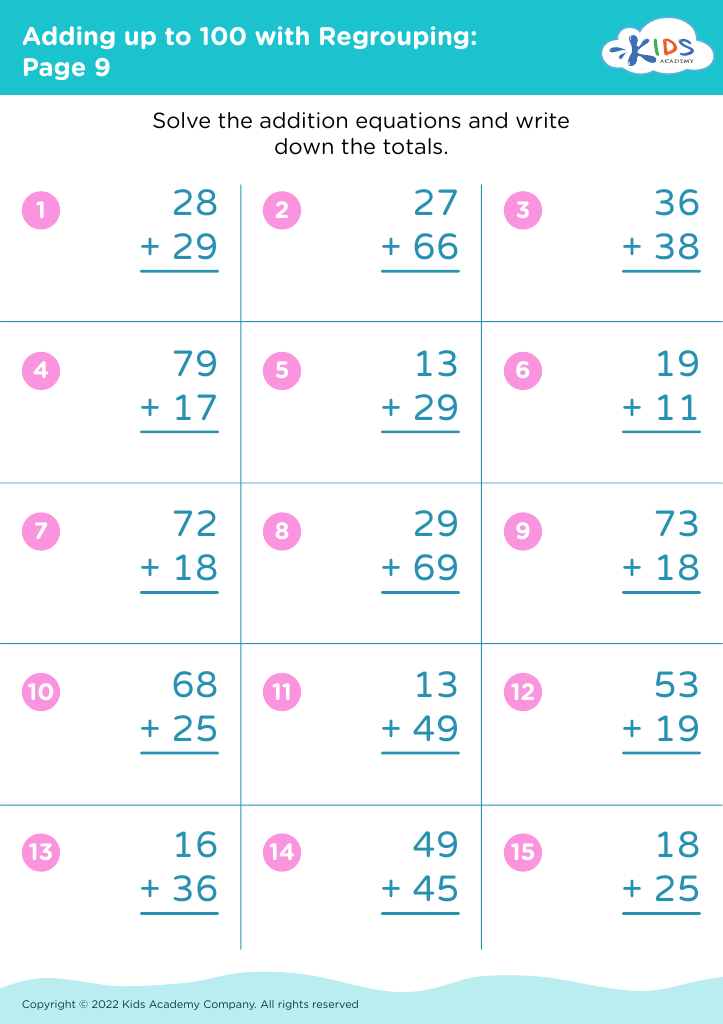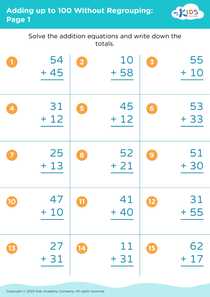Fraction comparison Adding up to 100 with Regrouping Worksheets for Ages 3-7
3 filtered results
-
From - To
Discover our engaging "Fraction Comparison Adding Up to 100 with Regrouping Worksheets" designed for ages 3-7! These interactive resources help young learners grasp fundamental math concepts through fun fraction comparison activities. Our worksheets incorporate inviting visuals and straightforward instructions, making it easy for children to understand how to add fractions that total 100 while practicing vital regrouping skills. Perfect for homeschooling or classroom settings, these worksheets encourage critical thinking and confidence in math. Foster a love for numbers and enhance problem-solving abilities through enjoyable, hands-on learning experiences tailored to young minds. Start your journey toward math mastery today!
Understanding fraction comparison and adding fractions that total up to 100 is crucial for children aged 3-7 as it lays the foundation for mathematical literacy. At this age, children are developing critical thinking and problem-solving skills, which are essential for their cognitive development. Engaging with fractions helps young learners recognize the concept of part-whole relationships, which is fundamental in everyday situations, from sharing snacks to dividing toys.
Teaching fractions introduces children to concepts of equivalency, proportion, and measurement, fostering their abilities to compare sizes and quantities. Moreover, learning to add fractions with regrouping provides insight into basic addition and subtraction, encouraging mental math abilities. This understanding is vital as children progress through their education and encounter more complex mathematical concepts.
By focusing on these skills, parents and teachers can empower children with the confidence to tackle math challenges. Additionally, such knowledge can boost their performance in future grades, where more sophisticated numerical reasoning is required. Overall, understanding fraction comparison and addition not only prepares children for academic success but also equips them with practical skills for analyzing and interacting with the world around them.















